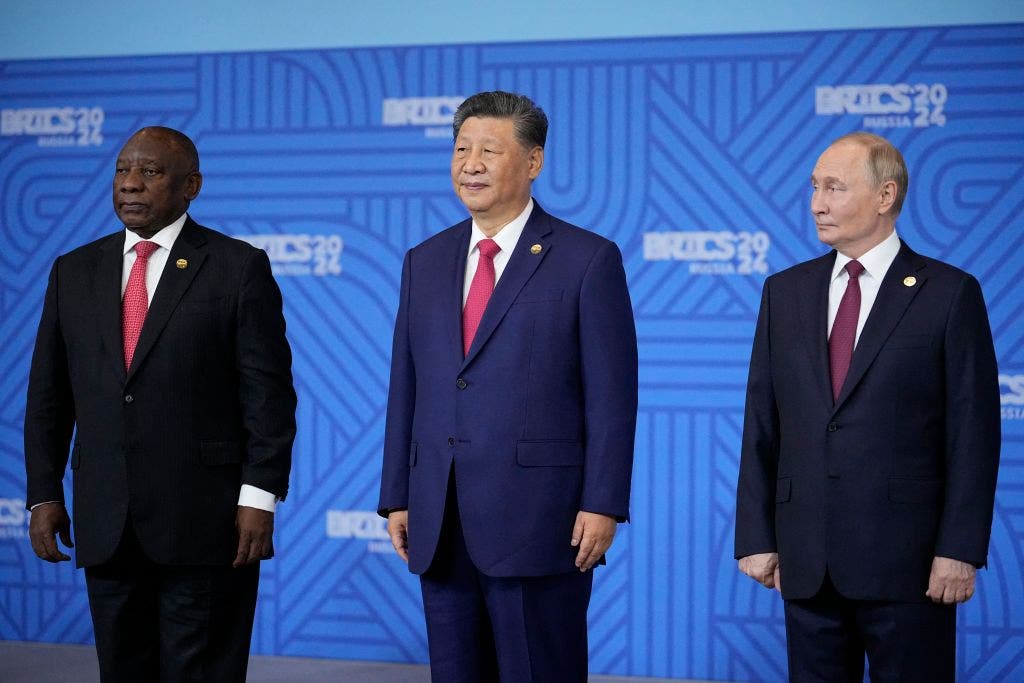The re-emergence of Donald Trump onto the global political stage has cast a long shadow over South Africa’s trade relations with the United States. Key Republican figures, emboldened by Trump’s return, are applying pressure on the incoming administration to reassess South Africa’s participation in preferential trade agreements, particularly the African Growth and Opportunity Act (AGOA). This pressure stems from South Africa’s perceived alignment with countries deemed adversarial to U.S. interests, including Russia, China, and Iran, as well as its critical stance towards Israel. The potential consequences for South Africa are significant, encompassing the loss of duty-free access to the U.S. market for key exports like automobiles and agricultural products, and the resulting economic fallout, including substantial job losses.
South Africa’s foreign policy decisions have drawn sharp criticism from prominent Republicans. The country’s participation in joint military exercises with Russia, its abstention from condemning Russia’s invasion of Ukraine at the UN, and its close ties with China, a major trading partner and fellow BRICS member, are viewed as undermining U.S. national security interests. Furthermore, South Africa’s relationship with Iran, another BRICS member, and its accusations of genocide against Israel at the International Court of Justice, have further fueled concerns among U.S. lawmakers. These actions have created a perception that South Africa is drifting away from the U.S. sphere of influence, and aligning itself with countries perceived as adversaries.
The potential repercussions for South Africa are severe. Exclusion from AGOA could cripple key industries, leading to widespread job losses and economic hardship. Senator Jim Risch, a prominent Republican voice on foreign policy, has expressed explicit concerns about South Africa’s foreign policy choices and their implications for AGOA eligibility. Senator Tim Scott, another influential Republican, has also strongly condemned South Africa’s actions, signaling a bipartisan push for a tougher stance on South Africa’s trade privileges. These voices are expected to gain greater influence under a Trump administration, potentially leading to concrete actions against South Africa.
Concerns about South Africa’s potential links with Iran and its support for designated terrorist groups have further intensified calls for a reassessment of trade relations. Richard Goldberg, a former National Security Council member, advocates for declassifying intelligence regarding South Africa’s relationship with Iran and utilizing diplomatic and economic leverage to compel Pretoria to choose between the U.S. and its perceived adversaries. This hardline stance reflects a growing sentiment within U.S. policy circles that South Africa’s foreign policy choices are incompatible with continued preferential trade treatment.
Despite the ominous warnings and the potential for significant economic consequences, there are voices within South Africa expressing cautious optimism. Matthew Parks, a respected labor leader whose members stand to lose significantly if AGOA benefits are revoked, believes that the mutually beneficial nature of the U.S.-South Africa trade relationship will prevail. He points to ongoing engagements between the two countries aimed at strengthening ties and renewing AGOA, suggesting that a diplomatic solution may still be possible. South Africa’s ambassador to the U.S., Ebrahim Rassool, also emphasizes the mutual benefits of trade, highlighting the importance of South African exports to the U.S. market and questioning the logic of jeopardizing these beneficial arrangements.
The incoming Trump administration’s stance on South Africa’s trade privileges remains uncertain. While there are strong pressures from within the Republican party to take a hardline approach, the potential for mutually beneficial trade and the complexities of international relations may temper any drastic actions. South Africa’s response to this challenging situation will be crucial. Balancing its foreign policy objectives with the need to maintain vital economic ties with the U.S. will require careful diplomacy and a willingness to address the concerns raised by U.S. lawmakers. The future of U.S.-South Africa trade relations hangs in the balance, with both countries facing difficult choices in the months ahead.


